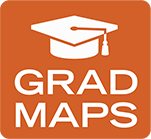- Program Prerequisites: Completion of all prerequisite courses with a grade of “C” or better (“C-” or CR are not acceptable in prerequisite courses). In addition, students must complete an application/selection process, which requires prior completion of current CPR certification at the BLS-C level (also see Admissions Requirements below).
- Grade Requirements: A grade of “C” or better in each course is required by this program (a “C-” is not acceptable). CR/NC courses in this program require a “C” or better to receive CR. A cumulative GPA of 2.5 is required to enter the program.
- Credit Hour Requirements: A total of 60-67 credit hours is required for graduation; 38 of these are required REST courses and 18 are required general education courses.
- Program Code: 2022AAS
- CIPC: 510908
Advisement
Students may contact an advisor in the Dr. Ezekiel R. Dumke College of Health Professions’ Admissions & Advisement Office (Marriott Allied Health Building, room 108, phone 801-626-6136, email healthprofessions@weber.edu) for program information and an application.
 Use Grad MAPs to plan your degree
Use Grad MAPs to plan your degree
Admissions Requirements
Declare your program of study (see Enrollment Services and Information ). Meet with a Dumke College of Health Professions advisor and then file a Program Application (at the Dr. Ezekiel R. Dumke College of Health Professions Admissions Office, MH 108 on or before February 1). Program selection criteria includes cumulative GPA, prerequisite GPA, completion of application process, previous healthcare experience, and formal Selection Committee interview. Complete all prerequisite courses with “C” (2.0) or better.
Admission requirements include the following:
- Graduation from high school or equivalent program
- Cumulative grade point average of 2.5
- Complete FBI criminal background check or designated background check. Any student that is convicted of a felony will be dismissed from the program.
- Admission to Weber State University
- Completed application to Associate of Applied Science Degree and payment of the $25 application fee
Prerequisite Courses
- (1)
- (4) (with a grade of “C” or better) or 23 or above on the ACT
- (3)
- (3) or
- (3)
- (3) or
- (3)
- (3)
- (1) or CNA, military medic, or EMT course
either
- (4) and
- (4) or
introductory level courses in the three basic sciences:
- (3)
- (3)
- (4)
General Education
Refer to Degree Requirements for Associate of Applied Science requirements. The following general education courses will fulfill both general education and program requirements: PSY 1010 or PSY SS2200, ENGL 1010 , COMM 1020 or COMM 2110 , and either HTHS 1110 /HTHS 1111 or introductory-level courses in some of the basic sciences (human biology, chemistry and microbiology). One additional course in a physical or life science is required for students taking the HTHS option.
Consult with Academic Advising or Dr. Ezekiel R. Dumke College of Health Professions Admission Advisor regarding general education guidelines.
Program Learning Outcomes
- Cognitive skills (problem solving) are facts and concepts that respiratory therapist must know and apply in practice. In didactic courses, learning objectives are evaluated in traditional methods and through face-to-face interactions or in on-line formats using “virtual labs” and in clinical scenarios. Learning objectives include words like discuss or explain a particular patient care concept.
- Psychomotor skills (task competency) are performance based activities encountered in laboratory and/or clinical settings. Simple re-demonstration of skills is rarely sufficient as a learning outcome but repeatedly practiced in peer-to-peer practices, instructor pass-offs, and with clinical preceptors at the bedside. Learning objectives include action words like analyze, apply, or compute data presented in patient care pathologies.
- Affective skills (attitude) are measured in attitudes or motivations of students in exhibition of favorable behavioral traits and in developing empathy for patients. These behavioral traits are evaluated by clinical preceptors for arriving “on time,” being prepared and/or showing interest in activities scheduled for the day. These can be viewed as employee characteristics that include statements like, “would you hire this student” at the conclusion of a clinical day. Clinical preceptors file daily evaluations (and students evaluate clinical preceptors for reciprocity) as feedback on these performances and in achieving the stated learning objectives. Graduation satisfaction surveys are completed at the conclusion of the curriculum by graduate surveys. Additionally, cognitive, psychomotor, and affective skills are annually measured by employer surveys completed within 6 months of program completion and reported to our accreditation commission (CoARC) which remain on-file for a period of three years.